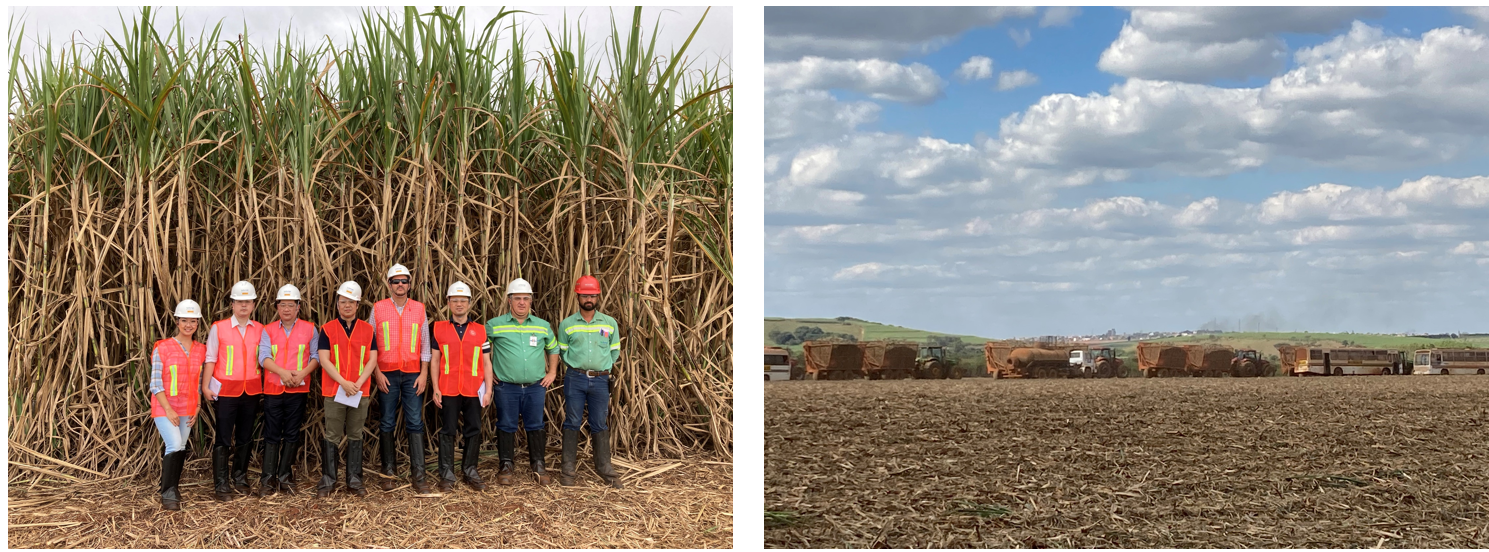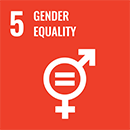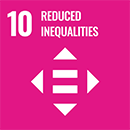Sustainability
Human Rights
Approach and Policy
The Takara Group has established the 'Takara Group Human Rights Policy' to respect the human rights of all stakeholders. In line with the United Nations 'Guiding Principles on Business and Human Rights,' we have developed a human rights due diligence process and are advancing various initiatives, including education and training.
The Takara Group Human Rights Policy
Recognizing that the Takara Group may potentially affect the human rights of various stakeholders, including business partners, customers, and local communities, in addition to our employees, through our business activities, we respect human rights as set out in the United Nations’ International Bill of Human Rights and the International Labour Organization (ILO) Declaration on Fundamental Principles and Rights at Work.
This Policy applies to all officers and employees of the Takara Group. We also request business partners to support and comply with this Policy.
- We will comply with the laws and regulations of each and every country in which we conduct business activities.
- We will respect the diversity, personality, and individuality of all stakeholders and will not allow any irrational discrimination on the grounds of birth, nationality, race, ethnicity, creed, religion, gender, age, disability, sexual orientation, gender identity, employment status, hobbies, educational background, etc.
- We support the right to freedom of association and the right to collective bargaining. Illegal child labor and forced labor are not permitted in domestic and overseas working environments.
- We will establish and operate whistleblowing contacts within the Company and at an external third party organization for reporting violations of laws, regulations, and internal regulations including this Policy. In addition, we will prohibit any disadvantageous treatment of whistleblowers on the basis of such whistleblowing.
- We will extensively convey our Human Rights Policy to our employees, and provide ongoing education and training.
Targets
| Initiative themes | Specific measures | Targets |
|---|---|---|
| Respect for human rights | Conduct human rights education at new employee training and rank-specific training sessions |
[ Entire Group ] Respect the diversity (e.g., gender, age, ethnicity, sexual orientation, gender identity, disability), personality, and individuality of people in accordance with the Takara Group Human Rights Policy, and maintain a discrimination- and harassment-free workplace environment. |
| Understanding and respect for multiple cultures (multinational cultures) | ||
| Recruitment activities without discrimination | ||
| Initiatives to prevent harassment | ||
| Protect personal information and privacy | ||
| Initiatives ensuring due diligence to human rights | Implement a human rights due diligence process |
[ Entire Group ] Based on a human rights due diligence process carried out primarily by a cross-organizational working team, implement a series of initiatives identifying and evaluating risks to human rights, preventing and reducing negative effects, and tracking and disclosing the results of our initiatives. |
Related SDGs
Initiatives
Respect for human rights
Implementing programs to enhance understanding of human rights
Within the company, we promote internal awareness of human rights through various programs. These include compliance education via e-learning, new employee training, and tiered training programs that deepen understanding of the Takara Group Human Rights Policy and human rights in general. In the fiscal year 2023, we also conducted a human rights-themed program during the risk and compliance leader training for the entire group, followed by workplace education led by these leaders.
Main Initiatives in Fiscal Year 2023:- Conducted human rights training on the theme of "Human Rights and Harassment" (93 participants)
- Implemented workplace education by risk and compliance leaders (100% implementation rate)
- Conducted e-learning on the theme of "LGBTQ" (100% participation rate)
- Conducted e-learning on the theme of "Human Rights" (100% participation rate)
- Conducted a "Human Rights Learning Test" (100% implementation rate)
Understanding and respect for multiple cultures (multinational cultures)
In training programs for new employees and hierarchical training programs, we address the importance of respecting diversity. In addition, the "Takara Group Human Rights Policy" pledges to not tolerate discrimination based on nationality, race, ethnicity, etc. The "Takara Group Compliance Code of Conduct" also emphasizes the understanding of social conditions in each country and region and the need to fully consider their culture, customs, and religion, and this is strictly enforced within the company. Additionally, we conduct 'Cross-Cultural Understanding Training' for employees and their families who are newly assigned to overseas locations, aiming to help them understand the culture and customs of their destination. Starting from the fiscal year 2024, we will expand the target audience of this training to include employees working domestically who are taking language courses and other related training.
Recruitment activities without discrimination
In our hiring practices, we adhere to the Act on Securing, Etc. of Equal Opportunity and Treatment between Men and Women in Employment. To ensure thorough consideration for human rights, we provide our employees involved in hiring with education on human rights using manuals and other materials.
Initiatives to prevent harassment
To prevent sexual harassment, power harassment, and other forms of harassment concerning pregnancy, childbirth, child rearing, and care giving, we have established a consultation and complaint office at each workplace, in addition to an Ombudsman Committee.Additionally, as part of our compliance education, we continuously conduct training on various types of harassment.
Main Initiatives in Fiscal Year 2023:- (Domestic)Conducted a "Harassment Learning Test" (100% implementation rate)
- (Overseas)Distributed educational tools focusing on "Human Rights" and "Harassment" as key themes to risk and compliance leaders of overseas group companies, and conducted workplace education targeting managers.
Protect personal information and privacy
To protect the rights and interests of individuals, we consider it our social responsibility to appropriately handle and protect personal information in every situation in which we conduct corporate activities. Based on this belief, we comply with laws concerning personal information and other relevant laws and ordinances, clarify our Basic Policy on the Protection of Personal Information, and strive to continue enhancing our structure for the protection of personal information.
Initiatives ensuring due diligence to human rights
Implementation of human rights due diligence process
Under the Takara Group’s sustainability promotion framework, a working team consisting of members from Personnel Division, Compliance, and Sustainability leads efforts to respect human rights in collaboration with relevant departments across group companies.
The content and challenges of these initiatives are submitted and reported to the Sustainability Promotion Committee, which is supervised by the Board of Directors of Takara Holdings.
In fiscal year 2024, we continued to implement initiatives that have already been put into action within the Takara Group as part of human rights due diligence process. Under the leadership of the crossorganizational working team, we addressed issues in each process of human rights due diligence.
With regard to identification and assessment of negative human rights impacts, we have updated risk response maps (identifying potential human rights risks), confirmed that there are no new high-risk raw materials among the main raw materials procured by Takara Shuzo, and reviewed the compliance status of local subsidiaries with human rights due diligence laws in various countries, including the issuance of annual statements under the UK Modern Slavery Act. As for prevention and mitigation of negative impacts, we are continuing human rights education within the Group, such as a training program designed to enhance the understanding of human rights and compliance education by e-learning. We also regularly promote awareness of whistleblowing and Takara Shuzo’s Sustainability consultation channels.

〇FY2024 initiatives for each of the main items in the human rights due diligence process
| Item | Details of main items | Main Initiatives in FY2024 |
|---|---|---|
|
Human Rights Policy |
Penetration of the policy |
・Promoted the Policy through training sessions for risk compliance leaders and workplace education by these leaders |
|
Identification and assessment of negative impacts |
Updated risk response maps |
・Continued implementation of workforce risk assessments and updated risk response maps |
|
Monitoring of suppliers |
・Continued to obtain written consent regarding compliance with the Sustainability Procurement Guidelines at the time of onboarding new suppliers |
|
|
Monitoring of overseas group companies |
・Checked the status of their response to laws concerning human rights due diligence in each country |
|
|
Assessment of risks identified |
・Confirmed that the main raw materials we procure do not fall under the high human rights risk items on the List of Goods Produced by Child Labor or Forced Labor, updated by the U.S. Department of Labor |
|
|
Prevention and mitigation of negative impacts |
Development and communication of response flows |
・Made the Takara Group Helpline and contact point for harassments known to all through on-the-job compliance trainings and other opportunities |
|
Human rights education and training |
・Conducted compliance trainings (on-the-job, e-learning) and administered compliance understanding tests on human rights and related topics |
|
|
Effectiveness assessment of measures taken |
Conducting additional verification |
・Identified issues from fiscal 2023 initiatives and checked the status of fiscal 2024 initiatives periodically (three times per year) |
|
Explanation and disclosure |
Communication outside the Company |
・Disclosed information in the Integrated Report and on the sustainability section of the Company’s website |
Survey of human rights awareness
In promoting initiatives to identify human rights risks, we conducted a human rights awareness survey targeting employees for the first time in fiscal year 2022 (response rate: 88.7%). The survey aimed to understand employees' awareness of human rights, create indicators for future human rights due diligence (identifying issues), and further foster understanding of the group's 'Human Rights Policy' and human rights awareness through the survey.
The results of this survey revealed issues such as differences in knowledge and understanding of the 'Human Rights Policy' and human rights across workplaces and job types, and the ineffective implementation of human rights training and workplace education in some areas. Due to the lack of knowledge and understanding of the 'Human Rights Policy' and human rights, there is a risk that employees themselves may cause human rights violations or overlook violations occurring around them. Therefore, in fiscal year 2023, we shared these issues internally through feedback on the survey results and advanced initiatives to prevent and mitigate negative impacts within the group. These initiatives included providing human rights education to workplace human rights representatives, conducting dialogues (human rights study sessions) with domestic group companies and business sites using the analysis results of the human rights awareness survey.
Analysis of supplier survey results and identification/assessment of risks
At Takara Shuzo, we carried out identification and assessment of human rights risks related to procured raw materials using the following steps.
STEP①: Carry out interviews with suppliers.
STEP②: Investigate trends for items related to human rights among suppliers who do not meet the Procurement Guidelines standards.
STEP③: Identify human rights risks in the supply chain.
STEP④: Assess human rights risks in the supply chain.
Based on a supplier hearing survey targeting 242 companies, we identified suppliers that did not meet the standards of the Sustainability Procurement Guidelines and investigated trends in the human rights-related items of the guidelines. In addition, we cross-referenced Takara Shuzo’s purchased products with the “List of Goods Produced by Child Labor or Forced Labor” published by the U.S. Department of Labor, and discovered that Brazilian sugarcane was on their list. So we identified Brazilian crude alcohol as being a purchased product that had a human rights risk. To assess the human rights risks, we carried out interviews with the supplier from which we procure this crude alcohol, which showed that the producer was not using forced labor or child labor.
In addition, as part of our efforts to identify and assess risks, we visited a crude alcohol manufacturing supplier in Brazil in May 2023 and conducted an on-site investigation into the local labor environment, with a focus on human rights risks. We determined that the risks of forced labor, child labor, health and safety, and environmental risks were low.
(REFERENCE)Ten Important Issues (Materiality) “Procurement”

Responses to related laws for human rights due diligence overseas
・Tazaki Foods Limited(UK):Annual statement on the British Modern Slavery Act.
Updated Risk Response Map
As part of our risk management initiatives, we conduct annual workplace inspections and updates to the risk response map at the business site level, including the identification of human rights risks. In fiscal year 2023, we reviewed and reflected two current risk items related to human rights risks in the risk response map.



